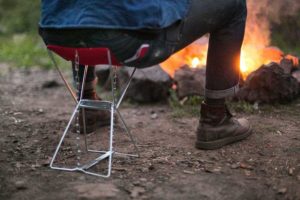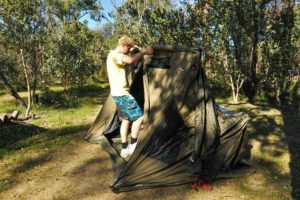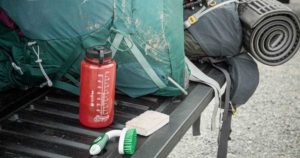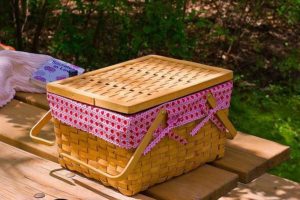Camping Hydration: Essentials, Tips, And Hacks To Stay Hydrated
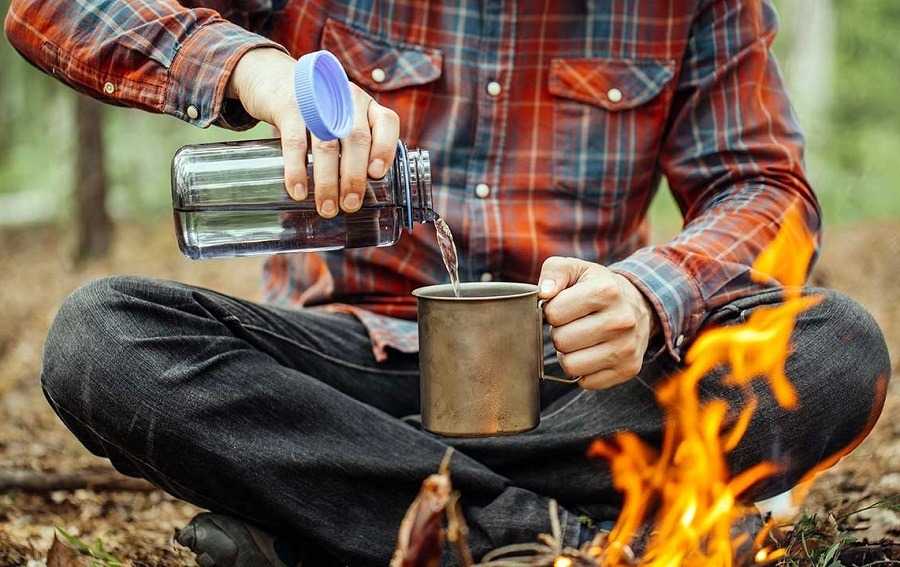
Hydration is a basic human need and we all require water to survive, but it’s even more important when we’re out hiking or camping. These activities move us far from home where we have drinkable water on tap and away from bottled water supplies, so extra measures need to be taken for hiking hydration.
In addition to being far away from our usual water supplies, we’re also out in the sun doing physical activity. This is a recipe for thirst no matter who you are, and so the need for staying hydrated becomes even more important.
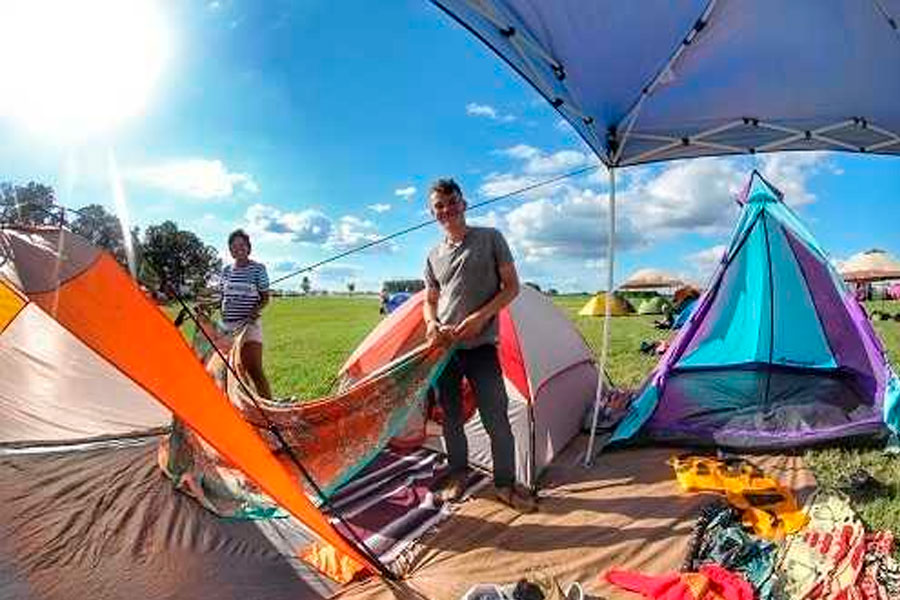
Luckily, hydration is one of the things that is covered in any hiking for beginners courses, and it’s not that hard to learn. Plus, we’ve found some simple tips and hacks that make it easy to stay hydrated when you’re in the great outdoors so that you don’t fall prey to the serious consequences of dehydration.
The Importance Of Safety And Hydration
We all need a lot of water each day even when we’re not off on an outdoor adventure, which is why hydration is so important to learn about. There are serious consequences that can occur when we go without water, and add to those the already risky consequences that can happen when we’re in the wilderness, you start to see why it’s so important.
The recommended guidelines for water intake vary slightly depending on age and weight, but when it comes to camping and hiking hydration it’s better to go slightly above. On average, we should be aiming for over two liters a day or the equivalent of eight 8-ounce glasses, especially when working up a sweat outside.
In addition to understanding the human body and its requirements for water intake, we need to know about water safety. There are many different bacteria living in water and when it’s not filtered and cleaned properly it can be harmful and even fatal.
There are a few ways you can purify water while you’re in the outdoors. Boiling on a stove, using a personal portable water filter, water purification tablets, and pump water filters are just a few options to consider before heading out on your camping trip.
Different Methods Of Hydration When Camping And Hiking
Being in the outdoors means you have to get a little creative when it comes to hitting your daily water intake. These are just a few common methods for drinking water used by those who love hiking and camping.
Freshwater Collection
Depending on where you’re going, there may be access to a freshwater source. You’ll need to use some form of filter if you’re drinking this, as even if the water looks clean it can still be harboring bacteria.
Water Packs
A water pack is worn like a backpack and there’s a straw that comes around to meet your mouth for easy access. The advantage of this is you don’t have to carry anything around nor rummage through your pack just to have a sip.
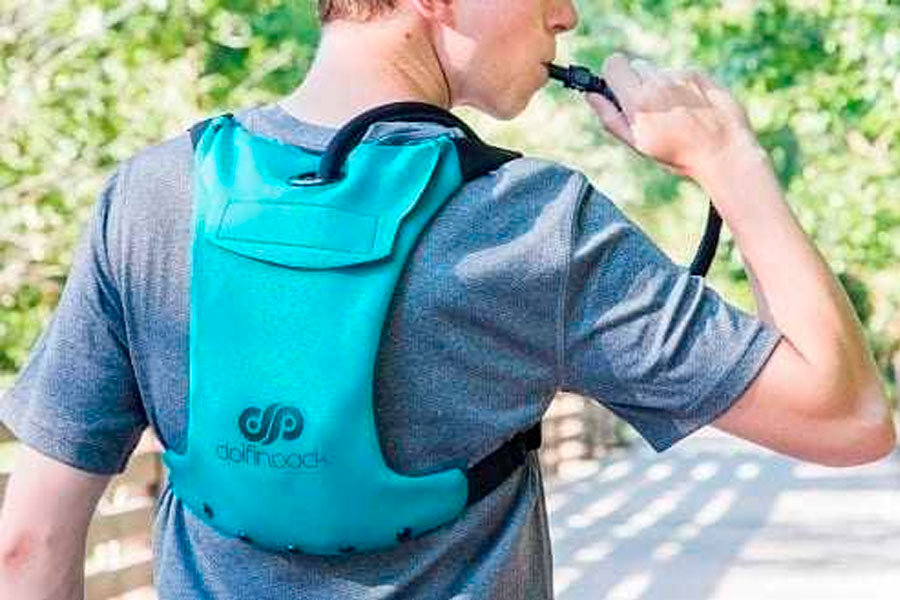
Bottled Water
Depending on how you’re camping, you may be able to bring along enough bottled water to keep you hydrated for the entire trip.
Campground Amenities
When staying at a campsite, check out what amenities they have on offer. Some camping grounds will have access to water that’s suitable for drinking or needs boiling but otherwise will be acceptable to ingest.
Tips For Staying Hydrated When Camping
If you need some extra pointers on how to stay hydrated when camping, take some advice from those who have been there before you. Have a few of these hydration tips up your sleeve so that you can avoid the thirst when you’re out in the wilderness.
Emergency Rainwater
Knowing how to collect rain can come in handy in a survival situation. Hang up an aluminum safety blanket so that it’s spread out and able to catch water. Each time it fills up, pour what you’ve collected into a spare bucket or container.
Hydration Bladder Versatility
Not only are hydration bladders great at quenching your thirst but they also make a great shower. Simply hang one up over a tree and you’ll get a shower that feels as close to home as possible.
Portable Water Filter
Purchase a portable water filter to keep as a backup, as this will store neatly away in your pack but be there when you need it. Even if you think you have enough water, you never know when supplies could run out.
Scavenging
If you’re out of water and in need of hydration, there are some things you can eat in the wild that will help. Berries, cacti, and green coconuts are just a few foods that will hydrate you, but you need to know which ones are safe to eat first.
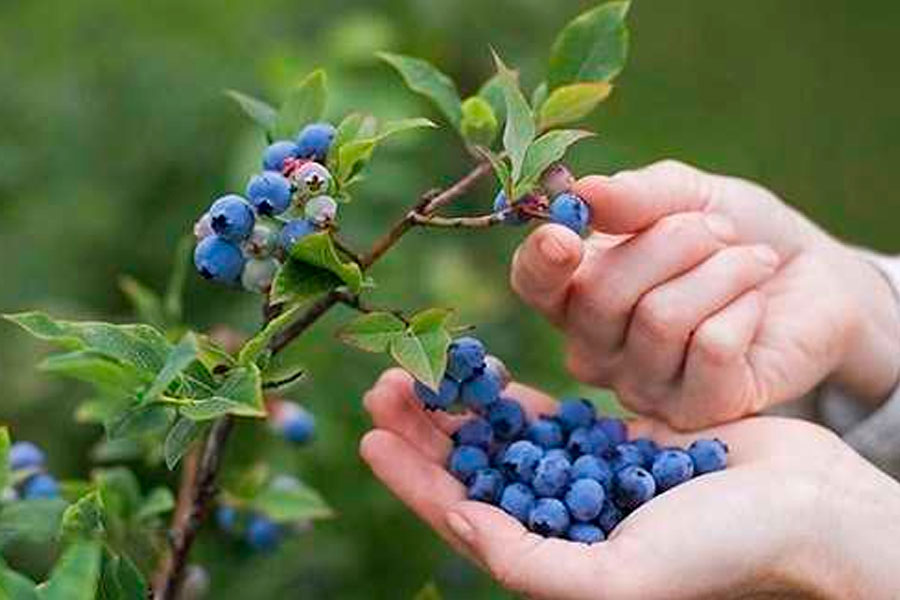
Hydrating Foods
Pack along some foods that have hydrating powers rather than salty or sugary snacks that can actually make you more thirsty. Cucumbers, lemons, spinach, and all types of melons are great choices when you’re in need of extra hydration.
An Essential Part Of Outdoor Survival
Water is the most important part of your camping or hiking checklist to tick off, so make sure you give it the attention it deserves. You should always plan your water intake based on the journey you have planned as well as extra rations in case an emergency should arise.
Hydration is an important part of health and wellbeing but this need for water becomes even more serious when we venture into the wilderness. Any good hiker or camper understands just how precious water will be to their survival, and usually employs a range of methods or tactics to ensure they stay hydrated.
Resources:

